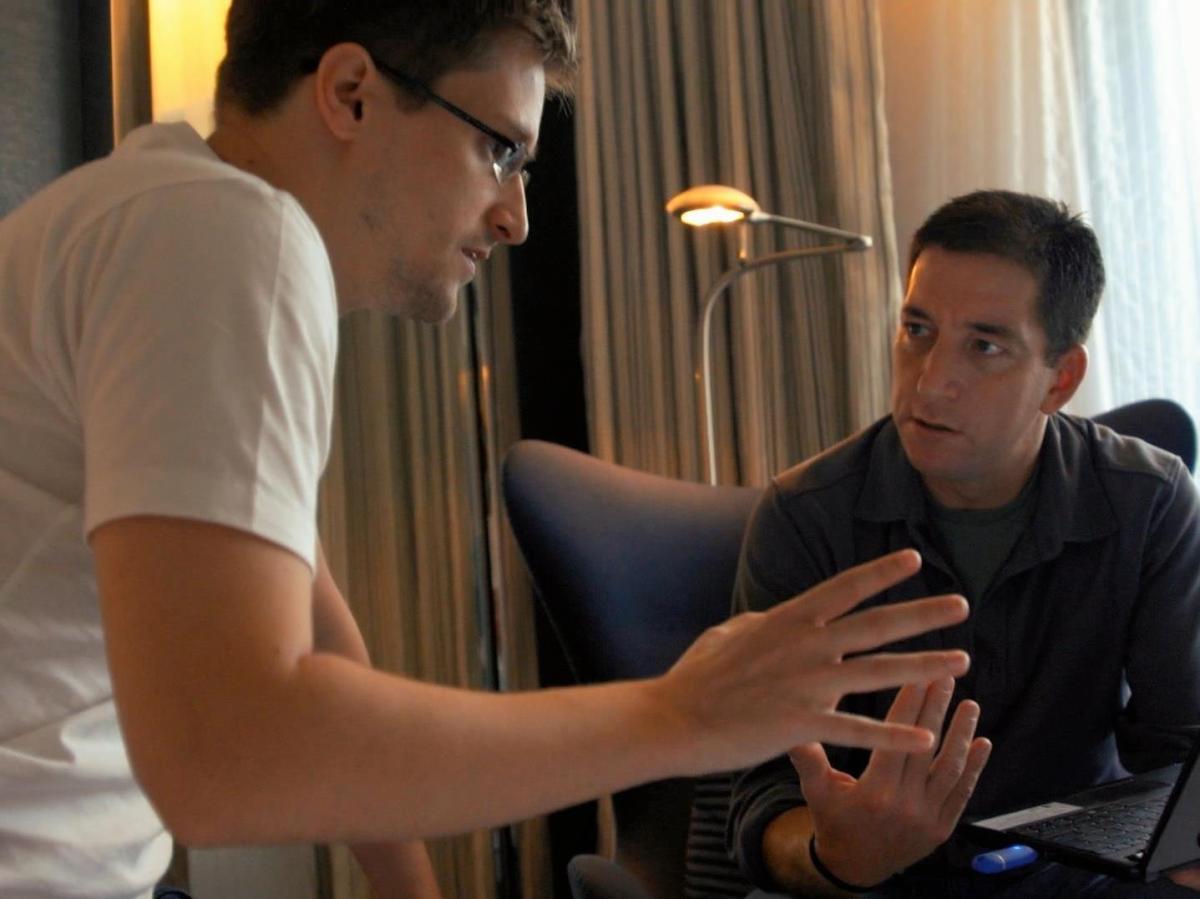Image: supplied
A man sits in a hotel room, sometimes typing on a laptop, more often just telling his story. He is both candid in his details and confident in his stance, but flickers of uncertainty – about how the world will react, and about what will follow his extensive chat – intermittently cloud his pragmatic expression. Now, his complicated tale is known by all, one of someone unable to sit idly by as a government amassed troves of data about the populace in the name of preventing terrorism. The man is 29-year-old Edward Snowden, the former U.S. National Security Agency contractor made famous by exposing the extent of secret surveillance activities on phone records, emails, bank accounts, search histories and more – and not just within America, but around the world.
His story starts with the codename Citizenfour, as does the tense and thoughtful documentary that delves beyond the debate that has raged constantly in the international news cycle for the past two years. In 2013, Snowden contacted documentarian Laura Poitras under the pseudonym, beginning a conversation about the covert, widespread collection of personal information. The filmmaker had attracted government scrutiny for her two previous dissections of life after the events of September 11, 2001, detailing Iraq under occupation in My Country, My Country, and exploring Guantanamo Bay and the war on terror in The Oath. In adding the final instalment to her thematic trilogy, the synergy was obvious; as Snowden told Poitras, the circumstances had chosen her to share his tale.
In fact, with his permission the accomplished director lets the reclusive whistleblower do the bulk of the talking, Citizenfour largely comprised of the extensive video footage taken during their first meeting – with The Guardian journalists Glenn Greenwald and Ewen McAskell in tow. That initial rendezvous lasted eight days holed up in Hong Kong, tracking the scandal that emerged from his revelations both before the first published piece, and after the resulting media frenzy kicked into gear. His phrasing is calm and his desire to avoid becoming the story himself is clear, as the camera zooms in on his furrowed brow, flits around the room as he paces, and watches his reaction to television coverage. To add context, expand upon crucial areas, and follow the threads that start to unravel as more and more details are made public, the film deftly weaves together text on title cards, Poitras’ voice as narration, news footage, testimony from other parties, official denials and more; however Snowden’s accounts to camera remain at the documentary’s core.
What Citizenfour delivers isn’t just a behind-the-scenes insight into a figure at the centre of a furore, or a recap of a complex issue already splashed across countless headlines, though the film does well with both. Even as Snowden remains front and centre, sincere, intelligent and determined as he always appears, the documentary presents the evolution of an insidious modern-day horror story. His words are the accessible guide to a terrifying scenario of constant observation and investigation already likened to the works of George Orwell many times over. Accordingly, chronicling the process, paranoia, politics, ethics and legalities of the eradication of privacy, piece by piece, is Citizenfour’s primary function, and one it achieves in unsettling and thrilling fashion.
Poitras is aware of the importance her content holds, proceeding quietly, pensively, patiently and with an even temper, with the devil existing in the plainly presented details. That her film feels less urgent and immediate when it is forced to focus on the aftermath is a testament to Snowden’s power, Citizenfour’s narrative never sounding better than when it comes straight from his mouth. And yet, the unnerving air, investing drama in even the most routine data and sustained by the astutely timed incursions from the industrial soundtrack, never fades. Just as many could not believe the extent of his revelations, whatever your opinions on the broader situation, you’ll simply never believe that watching a man speak softly in a hotel room could be as gripping, chilling, or as essential.
Rating: 4 stars out of 5
Citizenfour
Director: Laura Poitras
Germany / US, 2014, 114 mins
Release date: February 12
Distributor: Madman
Rated: M
Actors:
Director:
Format:
Country:
Release:





